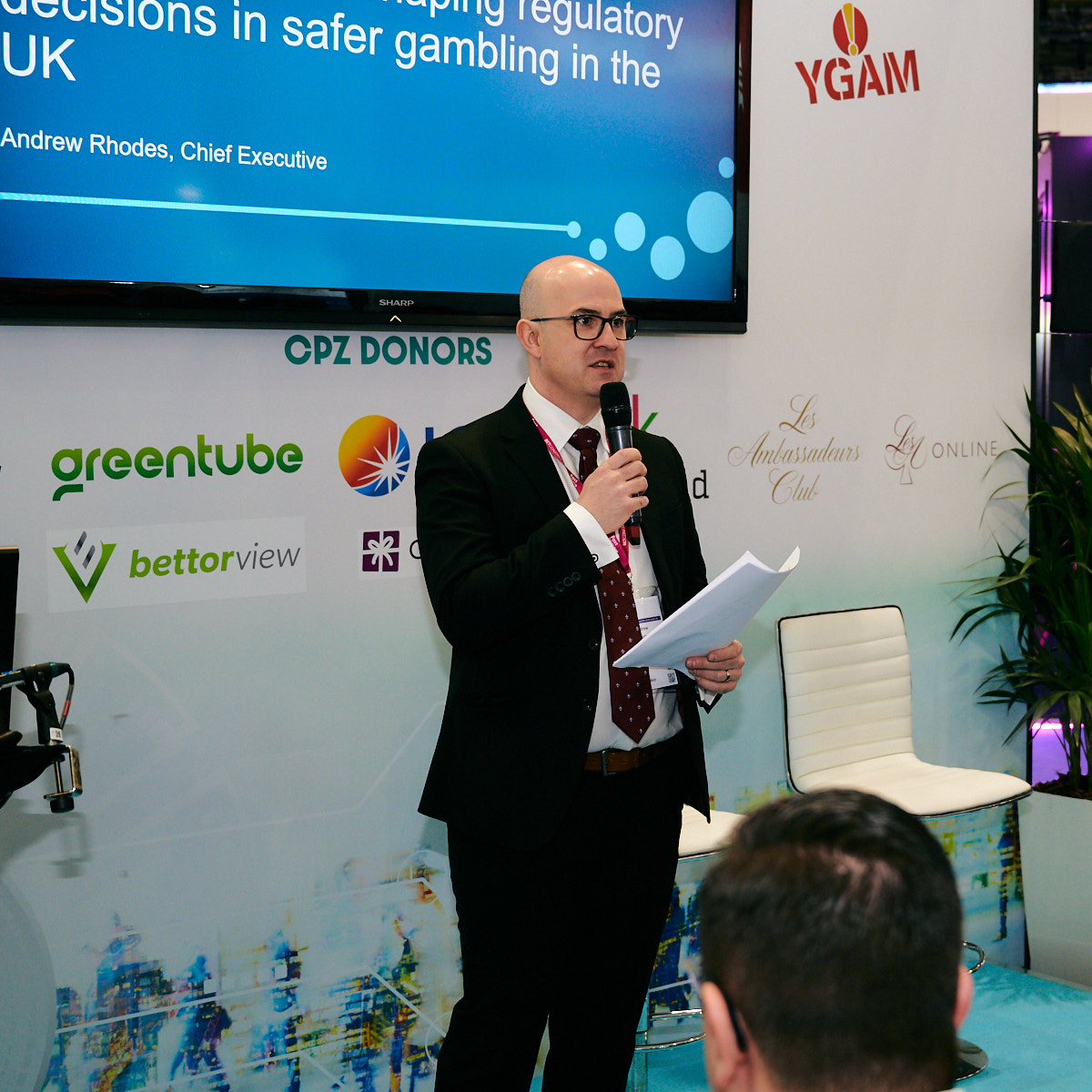Gambling Commission to take “evidence based” approach to problem gamblers

The number of problem gamblers has remained “statistically stable” according to research unveiled by the CEO of the Gambling Commission, but operators still have plenty to do to reduce the risk of harm.
Andrew Rhodes gave his keynote speech on the ‘Latest research shaping regulatory decisions in safer gambling in the UK’ at the Consumer Protection Zone at ICE London 2023, to an audience which packed the exhibition floor.
Rhodes said that despite public perception, there had not been a rise in the amount spend on gambling within the UK and that participation in gambling activity had remained “statistically stable” at 44% in a year-on-year comparison between September 2021 and 2022.
Rhodes added that the long-term trend towards online gambling had continued, rising to 27%. The overall headline problem gambling rate was also “statistically stable” at 0.3%.
Global mergers and acquisitions was key trends which was affecting the industry within the UK. He said that the top three operators had increased market share from around one third to half in just four to five years and the top 10 operators now represented 77% of total business to consumer gross gambling yield (GGY). He added that four of the top 20 fastest growing remote operators with more than £2.5m GGY had recently left the UK.
Rhodes explained the Commission was a “people focused” regulator and its role was focused on protecting those at risk, as well as the 10 million who gambled without risk of harm. He said technology could be used by operators to better protect customers but added that “safe behaviour varies between person to person.”
He stressed that more needed to be done by industry to tackle cases of “unacceptable gambling,” citing one example of an NHS nurse who was known by an operator to be earning a £30,000 salary, but had managed to spend £245,000 in just three months.
He said: “There are far too many of them. All operators have accepted that these cases are unacceptable and have no place in a regulated industry. It has to stop.”
Rhodes said the regulator would not impose blanket bans or set limits on individuals, adding: “It’s for operators to set the limits themselves to prevent the sort of cases that I have outlined.”
He said more would be known once the UK Gambling Act white paper was published but said this was likely to be further delayed as a result of yesterday’s cabinet reshuffle. Rhodes added that the Commission would be taking an “evidence-based” approach to regulation, with a major focus on gambling harm.
Rhodes said the Commission would be devising a new methodology this year with a conference entitled ‘Setting the evidence agenda’ taking place next month.
The Consumer Protection Zone (CPZ) has featured a packed agenda of sessions.
The Consumer Protection Zone agenda continues at N1-220 tomorrow.
